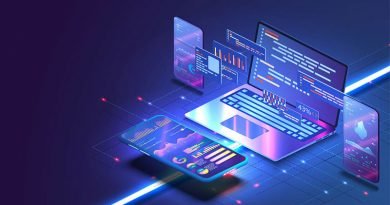Learning is a journey made up of many steps, and the effectiveness of those steps can determine how successful one’s education truly is. Fortunately, there is seven simple yet effective learning strategies that can help maximize the potential for success.
The organization is key to staying on track with schoolwork
Creating categories for textbooks, notes, and other materials in relation to classes keep things tidy and make it easier to find what you need when needed. Additionally, prioritizing tasks will allow students to stay focused and motivated by tackling more difficult assignments first. It’s also important to set clear goals for yourself – breaking down intimidating long-term projects into smaller chunks will make them seem much less daunting!
Studying often and in short bursts
Studying often and in short bursts can be much more effective than one long cram session; It’s best to start earlier and give yourself plenty of time to learn, rather than waiting until the last minute when you may feel overwhelmed and rushed. Additionally, making sure to review new information often will help ensure that it is retained for use on tests or papers.
Forming study groups or teams with peers
Forming study groups or teams with peers who are also taking similar courses can be extremely beneficial for everyone involved; Spending time together discussing material helps reinforce understanding and develops a sense of camaraderie among students.
Making use of available technology to support your academic goals
Tutoring apps and online courses have made it easier than ever for students to gain access to quality educational resources from their phones or computers. This expanded access to materials helps ensure that more people can take advantage of the latest developments in education without having to visit an educational center or classroom. Technology-based tools also provide different teaching methods such as personalized feedback, interactive simulations, and videos that can help make learning more effective.
With one-on-one instruction from an instructor or teacher who has specialized knowledge in a certain subject matter, students can receive real-time feedback on their progress and get help as soon as it’s needed. This individualized attention also helps to develop better study habits and build confidence in the subject being studied. Additionally,online tutoring services offer flexible scheduling options so that learners can access help at any time and from anywhere.
Actively engaging with the course material
Summarizing key points after each class can really help solidify what has been learned – whether this is done through writing, speaking, or recording. Additionally, asking questions frequently (even if there is no immediate response) can help cultivate an understanding of the material and demonstrate commitment to learning the subject matter.
A deep understanding of core concepts & technology
Having a deep understanding of core concepts can be achieved through practice tests and quizzes; regularly testing oneself on the material helps determine which subjects need more attention and reinforces what has already been learned.
Innovative technology-based tools such as online tutoring and online study resources give remote access to real-time assistance and will allow students to quickly get an answer from experienced educators when it’s needed most. This kind of platform provides direct access to qualified instructors who specialize in a particular subject area. As most know, one of the most effective ways to learn is through personal interaction and collaboration with someone who has already mastered a specific area. Online tutoring provides an interactive learning environment that allows you to ask questions, receive feedback, and understand what is required to move forward.
Technology has revolutionized learning strategies and has created new opportunities for students to learn. Tutoring is one of the many ways that technology can be used to help students learn. Online teaching platforms make it easier to use interactive tools to create engaging learning experiences. Technology also makes it easier for teachers and students to track progress by providing detailed performance data. Both technology and tutoring can help students achieve their academic goals. So, how do you use technology for your learning?




